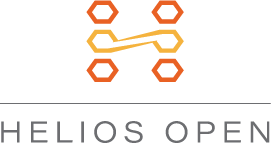Higher Education Leaders Convene to Explore Modernizing Hiring, Review, Promotion and Tenure to Explicitly Reward Open Scholarship
Fifty high-level college and university decision makers met on January 10 and 11 to discuss what they could do collectively to encourage open practices by changing incentive structures on campus. They collaborated at a workshop funded by NASA and hosted by Florida International University, in collaboration with HELIOS Open. The presidents, provosts, and vice provosts for faculty and research shared ideas about strategies for rewarding researchers’ open scholarship activities in structures and processes including tenure, promotion, review, and hiring. Many attendees agreed that updating tenure and promotion is one of the hardest institutional tasks, but that culture change is needed to achieve a more transparent, inclusive, and open incentives system.
Danny Anderson, President Emeritus, Trinity University, facilitated the meeting. After sharing remarks from HELIOS Open leadership, including Geeta Swamy, and recorded remarks from presidents Ron Daniels and Michael Crow, Anderson shared information about national and international efforts that advance open scholarship incentives, including the National Academies Roundtable on Aligning Incentives for Open Scholarship. Dr. Anderson also shared existing resources that could support leaders interested in taking action to enable change at their institutions. Recognizing how difficult it can be to enact new policies and navigate shared governance, he described useful models for complex change. Anderson encouraged campus leaders to be intentional, rather than reactive, and focus on the desired outcome when crafting their action plans.
Anderson asked attendees to form small groups to address the following questions related to changing processes and procedures to advance open scholarship incentives:
Where are you as academic leaders putting your attention– on problems that make you reactive or on outcomes you can achieve?
How are you relating to your campus? Are you taking on a reactive mindset or an outcomes mindset?
What actions are you taking based on your mindset?
Attendees received a handout with potential campus leadership actions suggested by the faculty and staff involved in HELIOS Open.
When the group reconvened , attendees reflected on faculty perceptions, realities, and needs related to career advancement, personal and professional values leaders should uphold in their policies and procedures, and how open scholarship can support faculty in career advancement. Participants explored their role in enabling change and brainstormed opportunities to replace archaic incentive structures. One attendee asked, “if something is open and freely accessible, can we start to ask how faculty are using it in their work to see where the work has grown and how it has led to breakthroughs?”
Next, a panel of federal agency representatives joined both virtually and in-person to share their intersecting goals for inter-agency coordination efforts on open science and public access. Marking the anniversary of the federal Year of Open Science, and what it might look like to enter an era of open science, it was clear that higher education leaders and federal agency representatives are eager to continue conversations with one another to ensure scholarship is transparent, accessible, efficient, and secure.
By the end of the day, the attendees suggested resources they might need to take action at their institutions, and brainstormed next steps to support faculty’s open scholarship activities, including:
Talking points to get faculty at all levels on board with change
Information about what types of (open and accessible) scholarly products, potentially those that are non-traditional, should and could be assessed
Better instructions (narrative documents) for external reviewers, and memorandums of understanding between departments and faculty describing how scholars would like their open scholarship activities to count in career advancement
Tips for creating a better onboarding process - one that includes better representation of open scholarship values and practices
More opportunities to connect with campus leaders to develop tangible action plans
The HELIOS Open network will continue to propel collective action in developing open scholarship incentives and to enable change.

